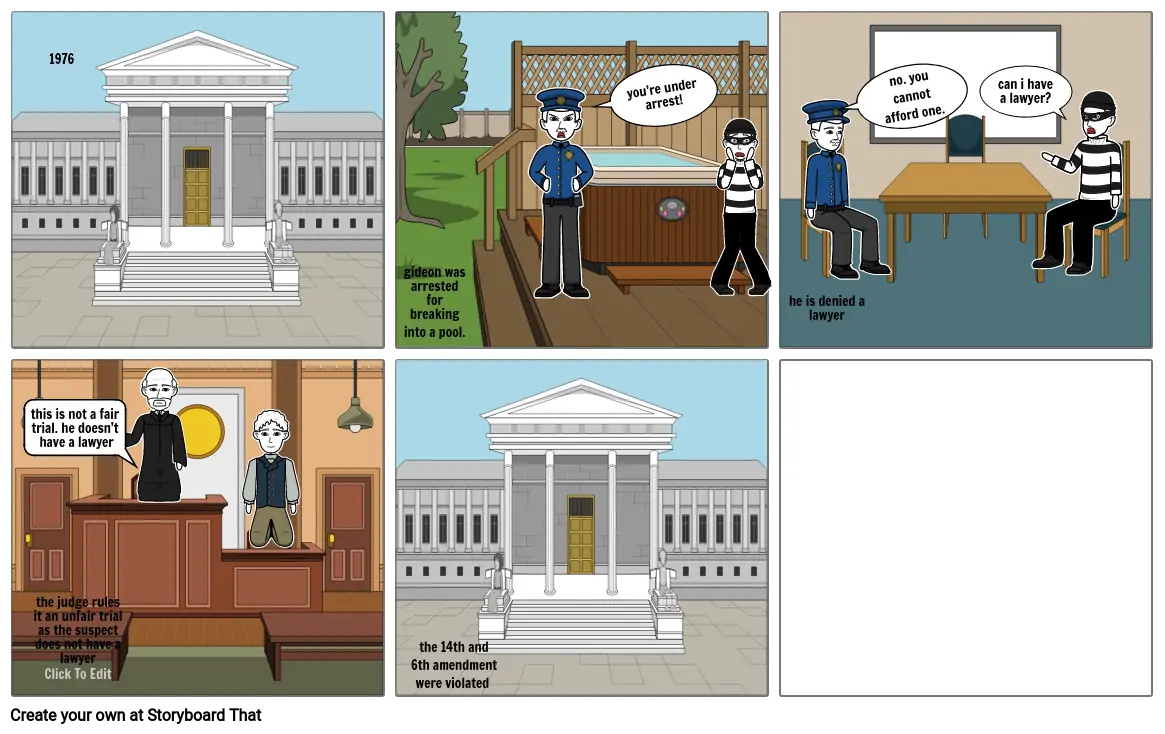gideon v. wainwright

Storyboard Opis
In 1961, Clarence Earl Gideon was arrested for breaking into a pool hall in Florida. Gideon could not afford a lawyer. At his trial, he asked the judge to name one for him. The judge refused. The judge was following Florida law. It required the state to provide lawyers only in death penalty cases. Since Gideon did not face the death penalty, that rule did not apply.
Gideon was not well educated and had no training in the law. He did not do a good job of defending himself at his trial. He was found guilty and sentenced to five years in prison. From his cell, Gideon hand-wrote an appeal to the U.S. Supreme Court. In it, he argued that a person’s Sixth Amendment right to an attorney should not depend on being able to afford one. The Court agreed to hear the appeal.
In March 1963, the Supreme Court issued its ruling in Gideon v.Wainwright. (Louie Wainwright was the head of Florida state prisons.) All nine justices agreed. Justice Hugo Black was the author of the Court’s decision.
Tekst Storyboardowy
- 1976
- gideon was arrested for breaking into a pool.
- you’re under arrest!
- he is denied a lawyer
- no. you cannot afford one.
- can i have a lawyer?
- this is not a fair trial. he doesn’t have a lawyer
- the judge rules it an unfair trial as the suspect does not have a lawyerClick To EditHelpEscapeInsert ParagraphUndo the last commandRedo the last commandTabUntabSet a bold styleSet a italic styleSet a underline styleSet a strikethrough styleClean a styleSet left alignSet center alignSet right alignSet full alignToggle unordered listToggle ordered listOutdent on current paragraphIndent on current paragraphChange current block's format as a paragraph(P tag)Change current block's format as H1Change current block's format as H2Change current block's format as H3Change current block's format as H4Change current block's format as H5Change current block's format as H6Insert horizontal ruleShow Link DialogSummernote 0.8.18 · Project · Issues
- the 14th and 6th amendment were violated
- that is ok. we will provide you with one
- this case made it so all people convicted of a crime or felony have a fair trial and they are provided with a lawyer
- but i cannot afford a lawyer
Utworzono ponad 30 milionów scenorysów

